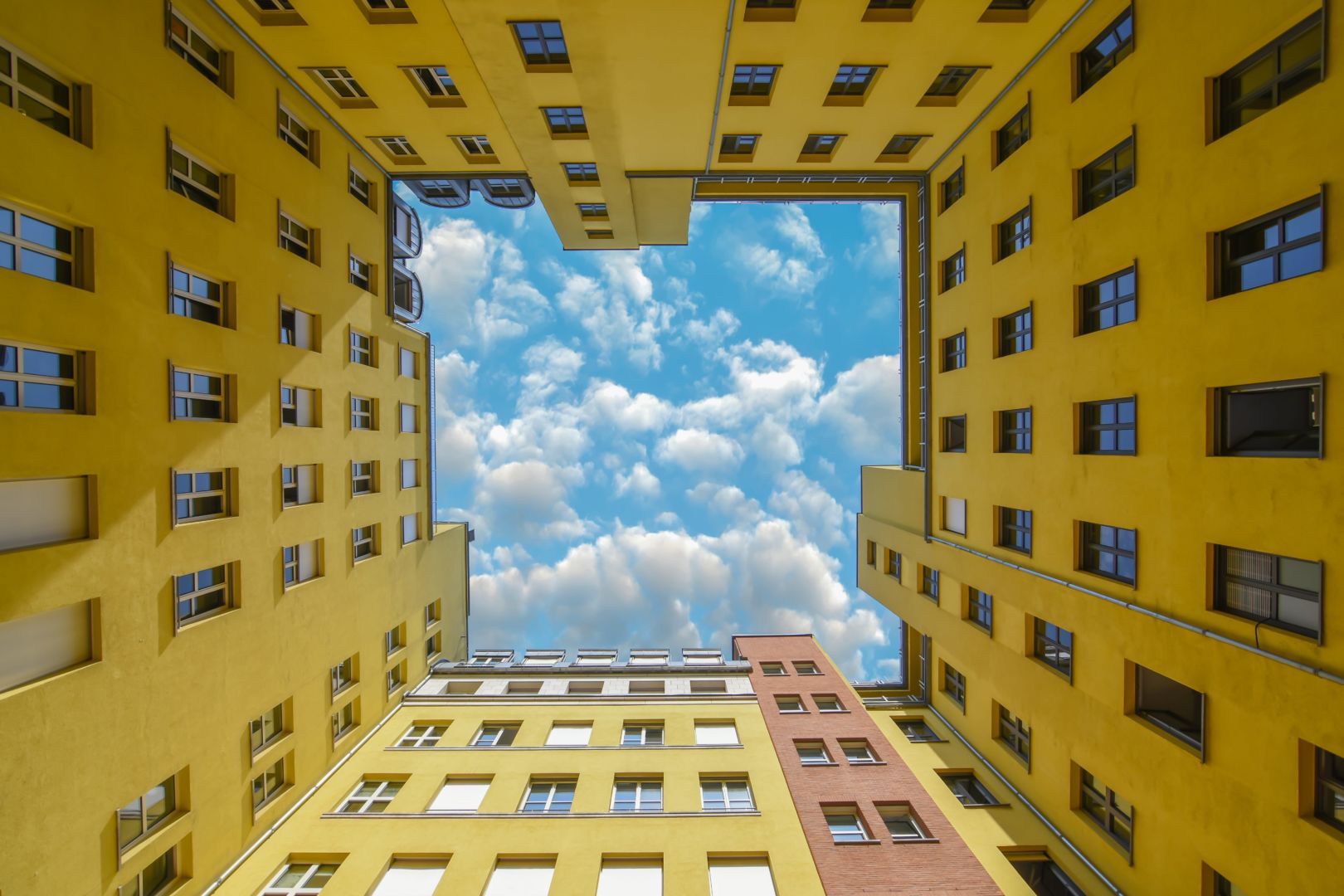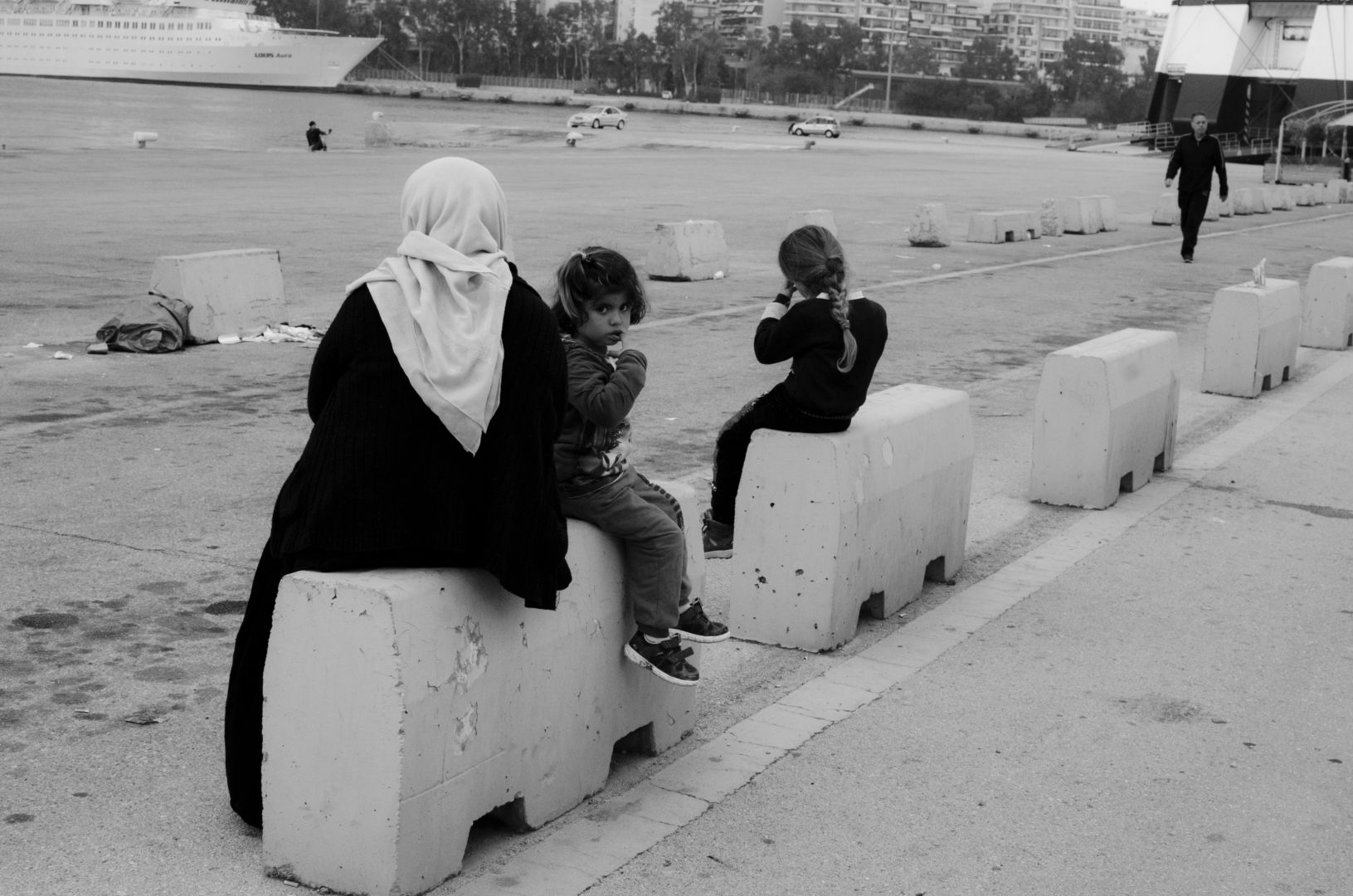Lars M. starts his story by asking me if I could refrain from using his last name. He wants to avoid potential issues with overzealous landlords that could google his name and find him ranting on the internet about impossible conditions one has to meet when looking for an apartment in Berlin these days. “Even as a privileged, white, German man that I am, it is really hard to find a decent place,” he says.
Lars moved to the German capital ten years ago, when the situation with the rental market was entirely different. “I moved into a shared apartment and paid 300 euro for a room,” he recalls. The rent he was paying was even considered a bit “above average” but the apartment was considered “giant.” As he is looking to move into an apartment with his girlfriend today, he is aware that he cannot hope for a similar deal.
Not poor anymore, still sexy
The former Berlin mayor Klaus Wowereit called Berlin “poor but sexy.” For a long time, Berlin was the European mecca for artists, freelancers, and various creative types looking for affordable housing and a hip environment. When you meet the people who came to the city fifteen or more years ago, they’ll tell you about the times when there was no shortage of cheap housing. You’ll hear stories about landlords who would let you live for free in their apartment for a couple of months, hoping you’ll move in eventually.
Berlin is still considered cheap in comparison to other European capital cities. According to Deloitte property index 2018 that compares residential property prices in different countries and cities, Paris is the most expensive capital in Europe, with a price tag reaching €12,910 per square meter; and €27.80 per square meter in a rented space. Munich is the third most expensive city on the list with an average price of €7,800 per square meter, surpassing other large German cities. In comparison, a square meter in Berlin will cost you €4,973 and €7.30 per square meters when it comes to renting.
But the difference is that in Germany, unlike in France, wealth is not concentrated in its capital, but in business centers such as Munich or Frankfurt. Moreover, the prices in Berlin jumped by 20.5% in 2017, and 15.2% in 2018, making it the city with the fastest rising property prices.
Moreover, the city desperately needs more affordable housing. A study conducted in 2018 by Hans Böckler Foundation found there were 1.9 million affordable apartments lacking in Germany, among which 310,000 in Berlin. In a city of renters – more than 81% of the capital’s property is rented out – this makes the apartment hunting process quite cumbersome. Lars says that every time he was invited to a viewing, another 40 people were invited at the same time. The fact that he has become a freelancer, opening a design studio three months ago, makes the situation even more difficult. “I cannot present my pay slips to rental agencies and future landlords, which is a huge problem,” Lars explains. Recently, he was asked to fill in a form in which one of the questions asked if he played any instruments – something that he thinks is probably illegal for landlords to ask.
The situation is not easier even if one is not looking for an apartment, but for a room in a shared flat. Nastja Antonenko, has came to Berlin from Russia to do her studies, and has been living here for the past seven years. “I first lived in student housing, and for the past year, I have been moving apartments. I would find rooms through friends, posting my search for apartments on all the social networks,” she says. But the third time she was supposed to move, she wasn’t so lucky and didn’t find anything through her friends. She spent a great deal of time searching for rooms on WG Gesuht, a website that connects people looking for rooms and their potential future roommates. “Reading texts of what people are looking for in a potential roommate, and then responding to them has been my part-time job for the past month. Out of 200 messages I sent, I maybe got like five answers, because people are overwhelmed with messages. It is like a competitive dating site,” she says. Nastja finally found a place – again through friends – but ended up paying more than she thought she would for a place in a neighborhood she doesn’t particularly like.
Rent Freeze
To put an end to rental rise, in June 2019, the city authorities voted to freeze rents for the next five years. Berlin government approved the measure on October 18, 2019 and it will enter into force in 2020. Maximum rent levels will be fixed at the city level, and tenants will have legal recourse if their rent exceeds the cap. Moreover, landlords could face fines of up to €500,000 if they are caught overcharging. The rent cap does not apply to new construction, however, and the deal allows inflation-related rent increases.
Mietendeckel (rent freeze) might only be a temporary measure, and it has not been implemented yet, but it has already caused a lot of stir. Deutsche Wohnen, the biggest single investor in Berlin property, called it “a frontal attack on the rule of law,” notes LOLA mag, a Berlin-based culture magazine. The website Politico said the city’s leftist government project is “straight out of the Hugo Chávez playbook”, casually dubbing Berlin “Germany’s Caracas”.
But this measure could only be a start, hopes the initiative named ‘Deutsche Wohnen & Co Enteignen’ (it translates as Expropriate Deutsche Wohnen & Co) that calls for the nationalization of Deutsche Wohnen – the city’s largest private property companies.
Their campaign started in October 2018. In April 2019 the initiative already managed to gather thousands of protesters in downtown Berlin in a rally against rising rents. The protesters were encouraged to sign a petition for a referendum that would eventually ban large landlords from operating in the city and expropriate their property. The group managed to gather more than 20,000 signatures needed for the Berlin Senate to consider expropriation. If the group gathers an additional 170,000 signatures by February 2020, they could force a referendum on expropriation.
“Deutsche Wohnen has some 110,000 apartments in the city. They acquired the majority of them in the process of public housing privatization when the city was struggling with debt and was selling its property,” says Thomas McGath, one of the activists. McGath is originally from the US, and has been in Berlin for the past six years.
McGath explains that small property owners wouldn’t be impacted by the measure, as the property ownership would be limited to 3,000 units. The referendum would also establish housing as a basic human right. McGath quotes Article 15 of the German Constitution, which allows for the “socialization” of “land, natural resources and means of production”, transferring them to public ownership. The article has never been used before, but McGath believes it could give a good legal basis to their demands.
Airbnb restricted
This is not the first time the German capital has come up with revolutionary legislation. In 2016 the city assembly barred almost all landlords from renting their entire apartments to short-term visitors, putting an end to the rise of Airbnb and similar services. Short-term apartment rentals were allowed only exceptionally (upon a thorough examination of individual cases by the borough authorities), and those who’d get a short-term rental approval could only rent the apartment for no more than the average rent per square meter for the local area, reported CS Monitor in 2016. The Independent reported that the website listings in the German capital fell by 40% in the month following the ban. In January 2018, the Senate Department for Urban Development and Housing reported that almost 8,000 apartments were returned to the rental market in 2017, thanks to strict property laws introduced in 2016.
The city loosened the legislation two years later, in 2018. Currently, one can rent a room on Airbnb “provided that the share of this room is less than 50% of the total size of the residence.” If one wants to rent out an entire residence on a short-term basis, they are required to have a permit. The law also introduced fines up to €100,000. According to the data compiled on Inside Airbnb Berlin, there are currently 22,552 listings in Berlin, of which entire apartments comprise 47.5% of the offer, with an average price of €83 a night for an entire apartment and €52 per room. Only 22.5% of the listings represent hosts with multiple listings, meaning people that are more likely to be running a business and renting out multiple units.
And while the legislation on Airbnb in general received a lot of good press some warn that the law is discriminatory – for instance towards those living in a one-bedroom place. “I do travel journalism, and sometimes I am away for weeks or months. It makes sense to me to rent my place when I’m not in town,” says Daniel Cole.
Cole is British, but has been living in Berlin for 13 years. Five years ago he purchased a one-bedroom 50 square meter apartment in Friedrichshain, a hip neighborhood in Eastern Berlin. When he was away on a trip, he’d rent out his place on Airbnb. “Not only for financial reasons, but also logistical ones. It is good for security because it reduces the risk of break-ins. In the winter, it is good to have somebody to keep the water going through the pipes,” he says. Cole stopped renting his place in 2016, and has never decided to get a permit (“because of the German bureaucracy”, he notes).
Although he supports the legislation, he believes that the system should be more understanding for those who don’t work from 9 to 5, who are freelancers and travel a lot.
“The problem is that you have a big platform like Airbnb that distances itself from any responsibility and on the other hand, a super slow bureaucratic system that is German government. The two don’t function well together,” he concludes.
Living together
While the city authorities and organizations such as Deutsche Wohnen & Co. enteignen work on stopping rents from rising, others, such as the start-up Robynhood, want to introduce Berlin to a new type of housing – pod living. “We wanted to (…) create a completely new housing solution that combines the living aspects important to us, such as accessibility and community spirit,” says Robynhood’s press person. Their idea is to use commercial buildings (“so that we don’t take over the already-existing housing spaces”, as they explain) for the creation of co-living spaces that would feature pod units together with common spaces where the podhabitants could relax, work, cook and eat. They assure that their future tenants would not need to provide them with tons of documents, and that the housing rents would be competitive. “Since the rents in the city have risen a lot over the past years, we want to set an example and offer a competitive housing price,” they explain. The launch date of their first pod-space hasn’t been announced yet, but they created a waiting list for those that would like to reserve a place in the future pod housing. In August, they already had more than 4,000 people on the list.




